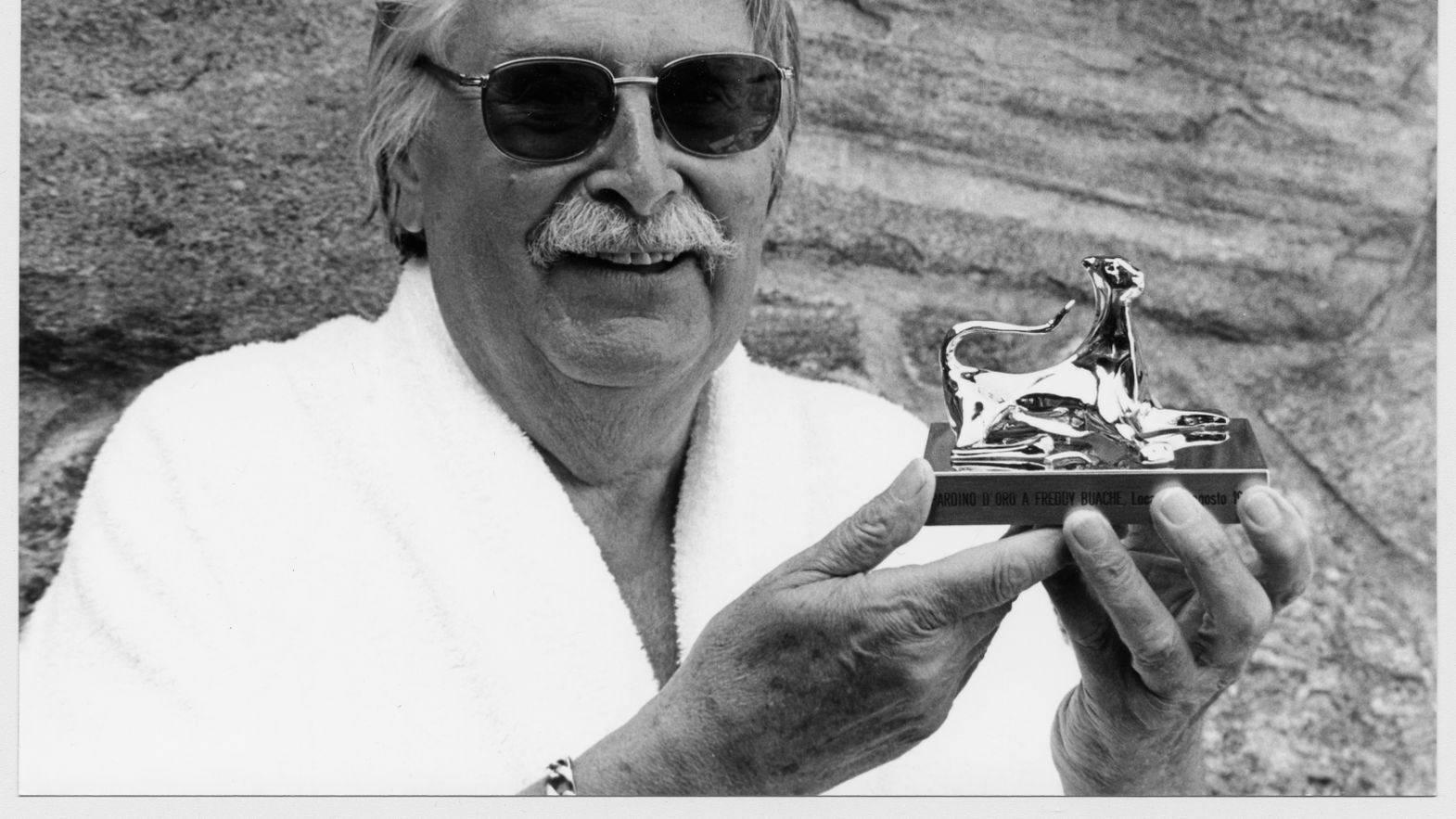
Monsieur Le Cinéma. He truly was cinema, indeed. Freddy Buache passed away on Tuesday, aged 94, with no closing credits, wrapped in a cinema-like, silent darkness. For he was, indeed, cinema. Not cinema as a whole, but someone who was made of, and for, cinema. One could list all the prestigious titles that made him a man of cinema, and we shall do that too. And yet those titles were but the consequence of being made of cinema. Buache was words, images, visions, letters, programming, lessons, verdicts, observations, verses, collections, one-liners, and stories. 24 frames per second, in black-and-white or color, shot on celluloid. And with a mustache.
Freddy Buache was also, among other things, the Locarno Film Festival. He ran it jointly with Sandro Bianconi from 1967 to 1970, serving simultaneously as a travel companion and as a Master. The Festival welcomed him back whenever possible and it was a true, long overdue and anticipated joy to bestow upon him one of the most intimate Pardo d’onore awards that Piazza Grande has ever experienced, in 1998. He returned in 2015 in Freddy Buache – Le cinéma, directed by jury member Fabrice Aragno. 45 minutes of passion taken from the archives of Radio Télévision Suisse, Cinémathèque Suisse and Cinéma en tête, the interview filmed by his wife, the journalist Marie-Magdeleine Brumagne, to showcase a day in the life of the director of the Cinémathèque.
An honorary member of FIAF for the past year, Buache was a pioneer of the Cinémathèque Suisse, which he ran from 1951 to 1996, playing a major role in worldwide cinephilia. Relinquishing his leadership role, but never quite leaving what had effectively become his family, Buache closed the book on half a century of a vision that could be seen as being in Cinemascope, such was the size, depth and richness of his outlook, derived from the “Langlois generation”: the film archive as a way of thinking and not just technique, a place of offering rather than merely preservation. With him at the helm, the Cinémathèque challenged America and opened up the small Swiss lungs with an international breath. His legacy was 65,000 reels, stacked on top of each other over the course of half a century.
Freddy Buache, who experienced his own cinema in written and spoken form, rediscovered and preserved, alongside that of his friends Luis Buñuel, Milos Forman and Theo Angelopoulos, was also the subject of two letters dealing with celluloid. The first, compiled in 1982, was Jean-Luc Godard’s Letter to Freddy Buache. The second letter, the response, arrived 25 years later, in 2007: Letter to Jean-Luc Godard, directed by Aubergier, Costanzo, Favret and Richet. The voice was that of Freddy, the voice of cinema. A voice that could be heard, oozing passion, every Wednesday afternoon in the Cinémathèque screening room. He was there, always, teaching 15-year olds about Louise Brooks and Greta Garbo. On the 29th, however, the class was canceled. Adieu, Monsieur Cinéma.